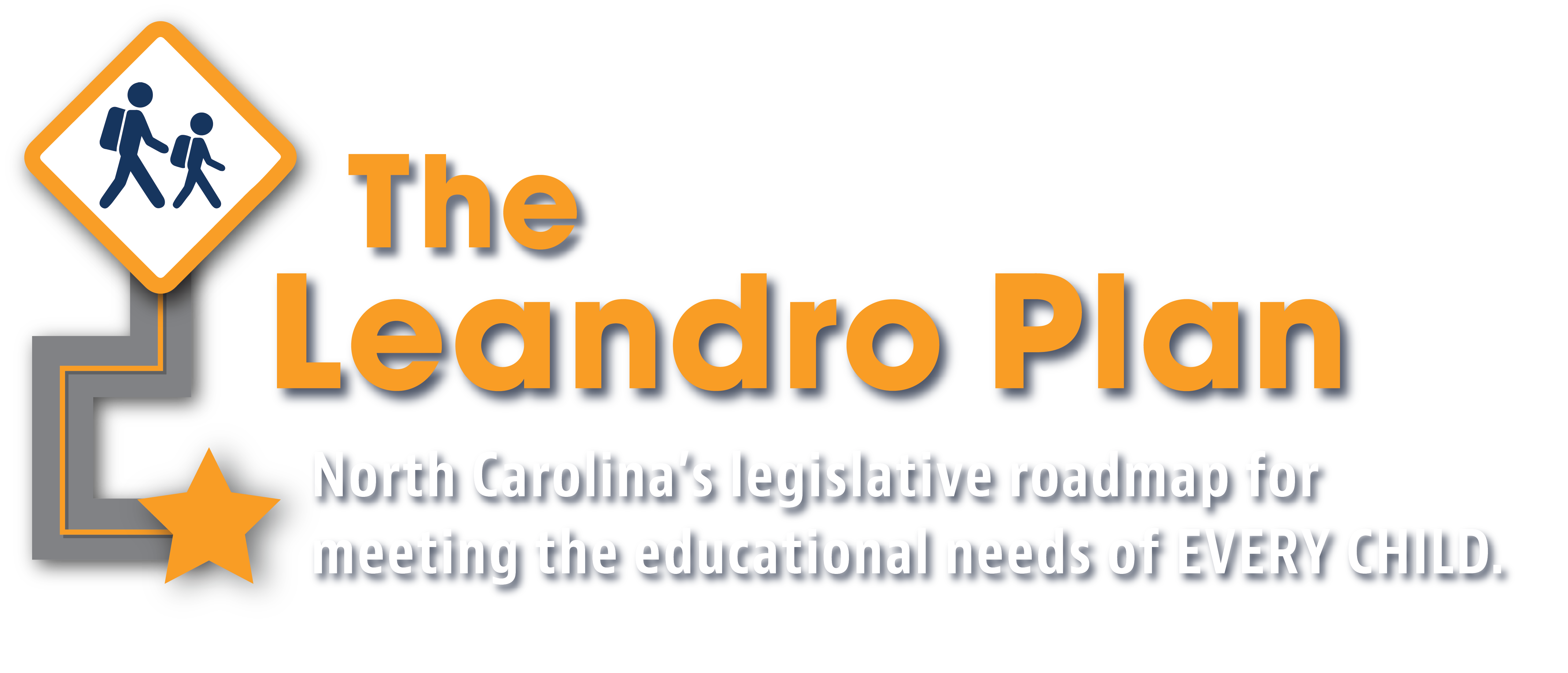How does the Leandro Plan benefit students from families with low income?


*with family incomes less than 185 percent of the federal poverty line.
Almost 1 in 5 school-aged children live in households below the federal poverty line, which is just $26,500 for a family of four.
Students from families with low incomes can be found at every school in North Carolina. However, schools with higher concentrations of economically-disadvantaged students face greater barriers to ensuring all students are on track to meet grade-level expectations. More than 400,000 students attend high-poverty schools where more than 75 percent of the students are eligible for free or reduced-price lunch programs.
Only 30 percent of economically-disadvantaged students meet the state’s standard for career and college readiness on state tests. In comparison, 58 percent of non-economically-disadvantaged students meet the standard. This impacts college admission opportunities; only 36 percent of economically-disadvantaged students meet the minimum ACT score for admission into the University of North Carolina system while 68 percent of all other students meet the minimum score.
Students from families with low incomes are less likely to have access to health care and out-of-school enrichment opportunities than their more affluent peers and are more likely to be exposed to physical and mental health risks. Within school, economically-disadvantaged students have less access to effective and experienced teachers and enrichment opportunities enjoyed by students in other schools.
Since 2004, the North Carolina courts have recognized that the state must provide at-risk students — which includes students from families with low incomes — additional supports and resources to ensure such students have an equal opportunity for a sound basic education, given the in-school and out-of-school barriers they face.
Fully addressing education inequality so that a student’s background is no longer predictive of their outcomes will require a comprehensive set of policy reforms that address both within-school and out-of-school factors. Every Child NC supports a comprehensive approach to equity that includes many out-of-school reforms. A constitutionally-compliant education system is a necessary first step on the path to achieving a more just, equitable society.
a schedule of polices to be adopted by the North Carolina legislature that eliminate the inequities and funding deficiencies that block children from receiving the sound, basic education guaranteed by the state constitution.
Increasing overall funding
The Leandro Plan proposes increasing per-student state spending by more than 40 percent. Studies in the past 20 years have consistently found that court-ordered increases in school spending like the Leandro Plan improve academic outcomes and attainment, boost lifetime earnings, and improve intergenerational social mobility, particularly for students from families with low incomes and students of color.
Increasing funding streams that disproportionately benefit students from families with low incomes
Most of the new spending in the Leandro Plan will disproportionately benefit students from families with low incomes. Funding for at-risk or “disadvantaged” students will increase by 291 percent, while supplemental funding for low wealth districts is slated to increase by 49 percent.
Overhauling the discriminatory A-F school performance grade system
North Carolina assigns every school an A-F letter grade. The system is supposed to be a measure of school quality, but instead has become a measure of school demographics. Only about 20 percent of “A” schools have above-average enrollment of economically-disadvantaged students. Nearly all schools labeled with an “F” grade have above-average enrollment of economically-disadvantaged students.
Expanding of community schools
Community schools partner with community agencies and local government to provide an integrated focus on academics, health and social services, youth and community development, and community engagement. The Leandro Plan will expand the number of community schools by funding a community school coordinator position at high-poverty schools and providing technical support to districts implementing such models.
Providing early intervention, child care, and prekindergarten classes
The plan’s early education recommendations will help children overcome poverty-related barriers to education and ensure more students enter kindergarten ready to learn. For example, expansion of the Family Connects program will provide nurse home visits to address infant and maternal health needs and help link families to community services. Elimination of the child care subsidy wait list will allow more parents to pursue work opportunities that provide much-needed economic stability. Finally, expansion of NC Pre-K is associated with long-term academic benefits and reducing referrals to special education programs.
Providing funding to increase the number of support personnel, such as school nurses, psychologists, counselors, and social workers
Increasing the number of support personnel in schools will allow schools to better meet the social-emotional, behavioral, and physical health needs of their students. Students from families with low incomes disproportionately lack access to physical and mental health services. They also tend to require more services due to greater exposure to adverse childhood experiences and exposure to health-compromising pollutants.
Establishing conditions that facilitate school integration
School integration is one of the most effective strategies for boosting student achievement and reducing educational opportunity gaps. While the Leandro Plan fails to explicitly address school integration, its recommendations will reduce barriers to local school integration efforts. When schools are adequately staffed and provide equitable access to advanced courses and enrichment opportunities, parents are more likely to support local school integration efforts.
Providing free lunch for economically-disadvantaged students
The Leandro Plan will provide free school lunches to students who qualify for reduced-price lunches. The Plan will also leverage federal funds to provide free school meals for all students in high-poverty schools through the Community Eligibility Provision.

Communities for the Education of Every Child NC

Comunidades para la Educación de Cada Niño NC
We are a community-led, statewide coalition of organizations, parents, teachers, and students who advocate for every child’s constitutional right to a sound basic education.
